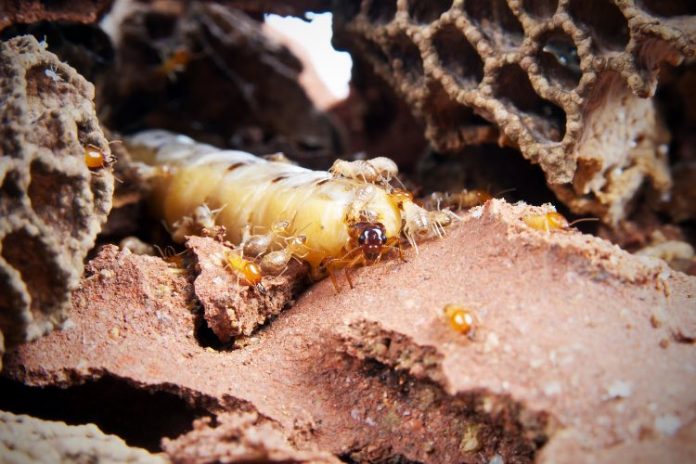Adult children concede to exploitative mums leading to the evolution of insect societies, new research led by the University of St Andrews has found.
Researchers in the School of Biology at the University found that adult young surrender to support the growth of their gene pool via the siblings their mother produces, rather than create their own nests and their own young.
The new findings published in the Proceedings of the Royal Society B, counter previous research which showed the adult young rebel against a ‘parasitic mother’.
Dr Mauricio González-Forero of the School of Biology at the University of St Andrews said: “The striking finding is that the young have evolved a way to resist the manipulation of the mother and so can leave the nest but choose not to.
“A parasitic mother ends up having increased fertility, which means that offspring that stay as adults in the nest end up having a lot of siblings to help and no longer have any incentive to leave the nest, because they leave more genes in the future generations by helping their numerous siblings rather than attempting to start their own nest.”
In some species such as termites and bees, mothers have the means to manipulate their young by exuding hormones which encouraged their adult young to stay in the nest and support their own breeding.
Effectively mothers may act like manipulating parasites by making offspring stay in the nest as adults and help.
Parasitic manipulation is increasingly well-known; for example, a protozoan called Toxoplasma makes rats fearless of cats, which then eat the rats and transmit the parasite in their faeces.
Researchers have expected manipulated young to evolve a resistance to the manipulation and then leave the nest.
However, this study finds that before resistance is complete, parasitic mothers evolve to become queens, such as in termites, which grow large and fertile yet unable to move and so are dependent on others in the nest providing food and support.
Consequently, manipulated young still remain in the nest – preferring to support the growth of their gene pool by helping their mother produce siblings rather than creating their own nest and young themselves.
The new research found that the parasitic mother can win in the end as her increased fertility allows her to greatly add to the gene pool while her adult young are saved the trouble of breeding and creating a nest, by supporting her instead.















